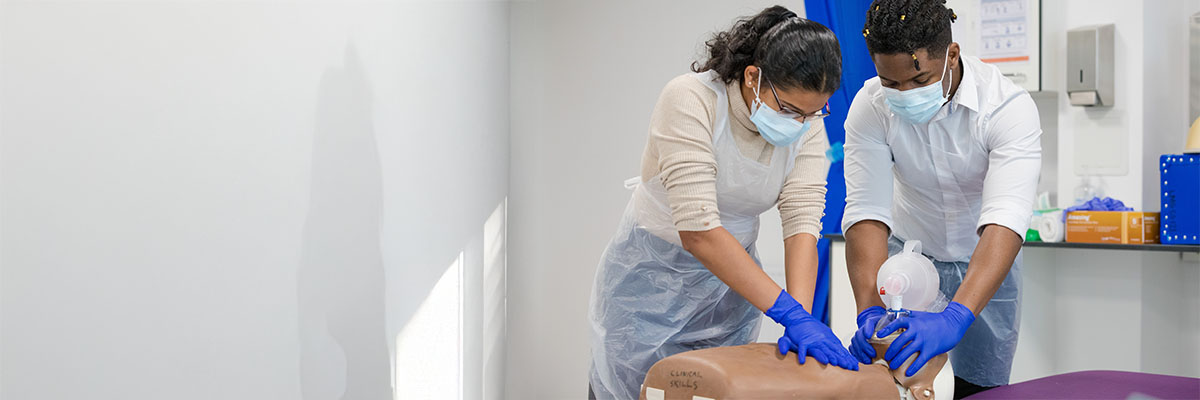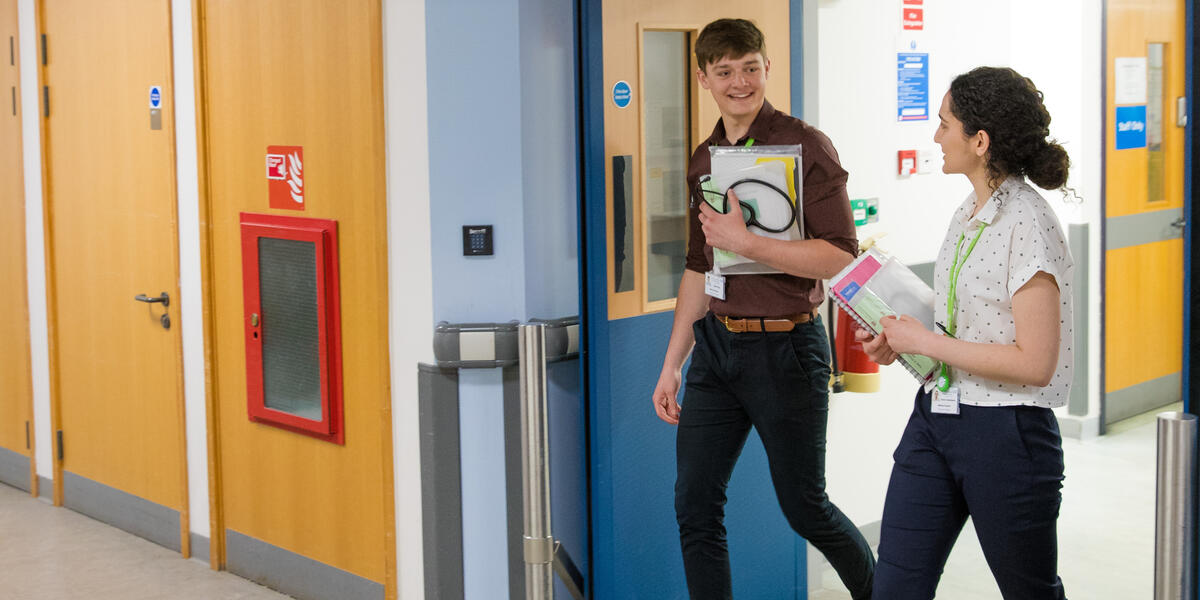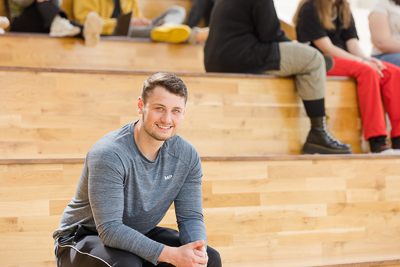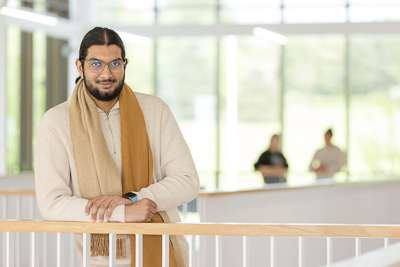Core Modules
Introduction to Biosciences
Gain hands-on experience of essential laboratory skills and equipment and learn how to conduct ethical research, analyse data and present your findings clearly and accurately.
Molecules to Cells
Learn how organisms can synthesise molecules to generate energy, build complex molecules and store genetic information.
Anatomy and Physiology
Examine the structure-function relationships of the organs and tissues that protect, sustain and maintain the body in human health and develop essential scientific knowledge and practical skills.
Genetics and Biotechnology
Explore the human genome, the role of bioinformatics in understanding genetic data, and how DNA damage can lead to mutations and disease.
Microbes, Pathogens and Immunity
Learn how the human host responds to exposure to pathogenic microorganisms, with a comprehensive introduction to immune response and the intricate relationship between pathogens and human health.
Foundations of Medicine
We will introduce you to healthcare in the UK and how it is delivered across primary, secondary and tertiary care, and about professionalism and what this means in practice for doctors.
You will be based primarily at the University where you will be introduced to key concepts in biomedical and social sciences, psychology, ethics, and medical law.
You will attend human anatomy teaching sessions in the Clinical Anatomy Learning Centre (CALC), alongside lectures, small group teaching sessions and workshops to learn about the normal structure and function of the human body and mind in health and ill health.
You will also receive a thorough grounding in basic clinical skills (examinations, procedures and techniques) and undertake extensive communication skills training to prepare you for patient contact.
You will spend time on campus as well as on placements in GP practices, hospitals and in a range of community care-related settings, allowing you to directly apply your learning from Year 1 to real-world clinical cases.
You will complete several clinical placements, each of which includes patient contact, clinical teaching and other teaching activities, such as lectures, tutorials and clinical skills sessions.
Much of your learning will be based around real clinical cases; you will present information from your own patient histories and use this information as the stimulus for further learning.
You will further develop your skills with clinical placements which include patient contact, hospital-based clinical teaching and other learning activities, such as lectures or tutorials.
You will sit your Medical Licensing Assessment (MLA) - which must be passed to graduate with a primary medical qualification
In Year 5, you will undertake clinical attachments, each consisting of intensive clinical experience. You will also have a chance to sit the national prescribing assessment exam.
A portfolio is used to guide and assess your learning. This mirrors the portfolio that will be used to assess your learning in your postgraduate medical training. You will take responsibility for your own learning and engage in reflective practice, to prepare you for Foundation training and life-long learning.






